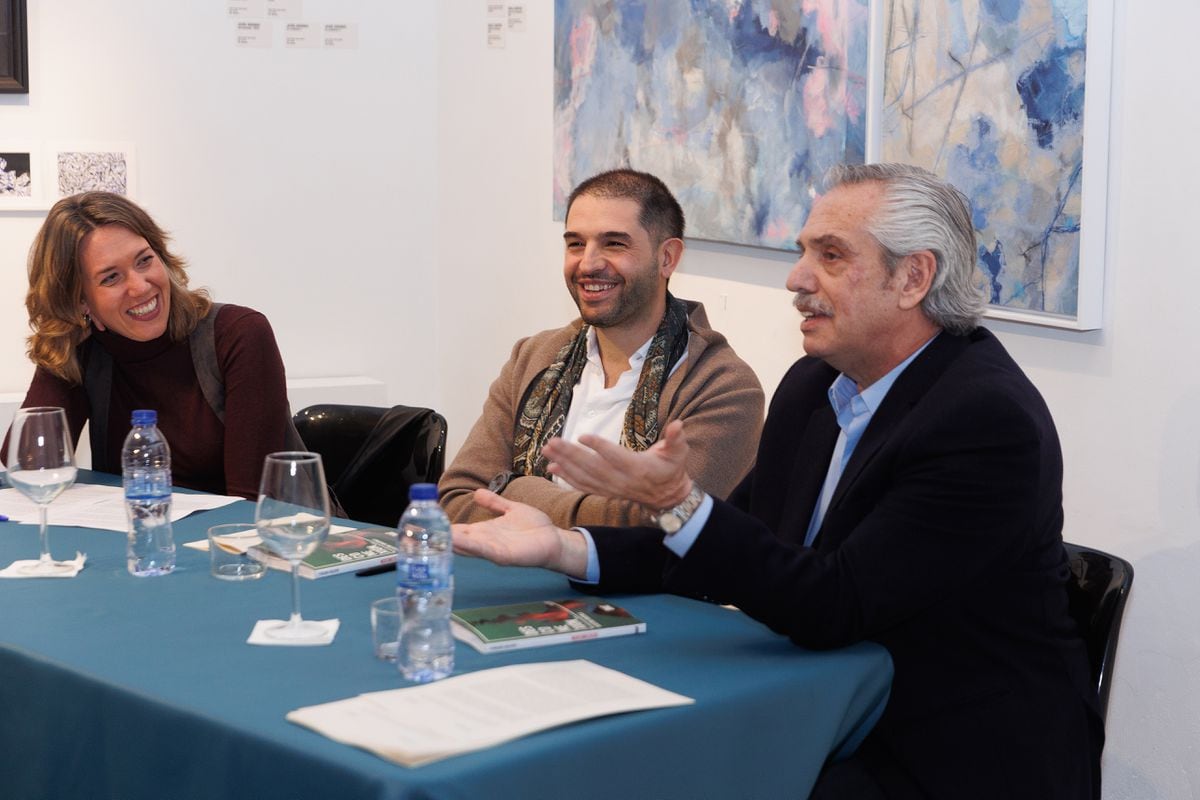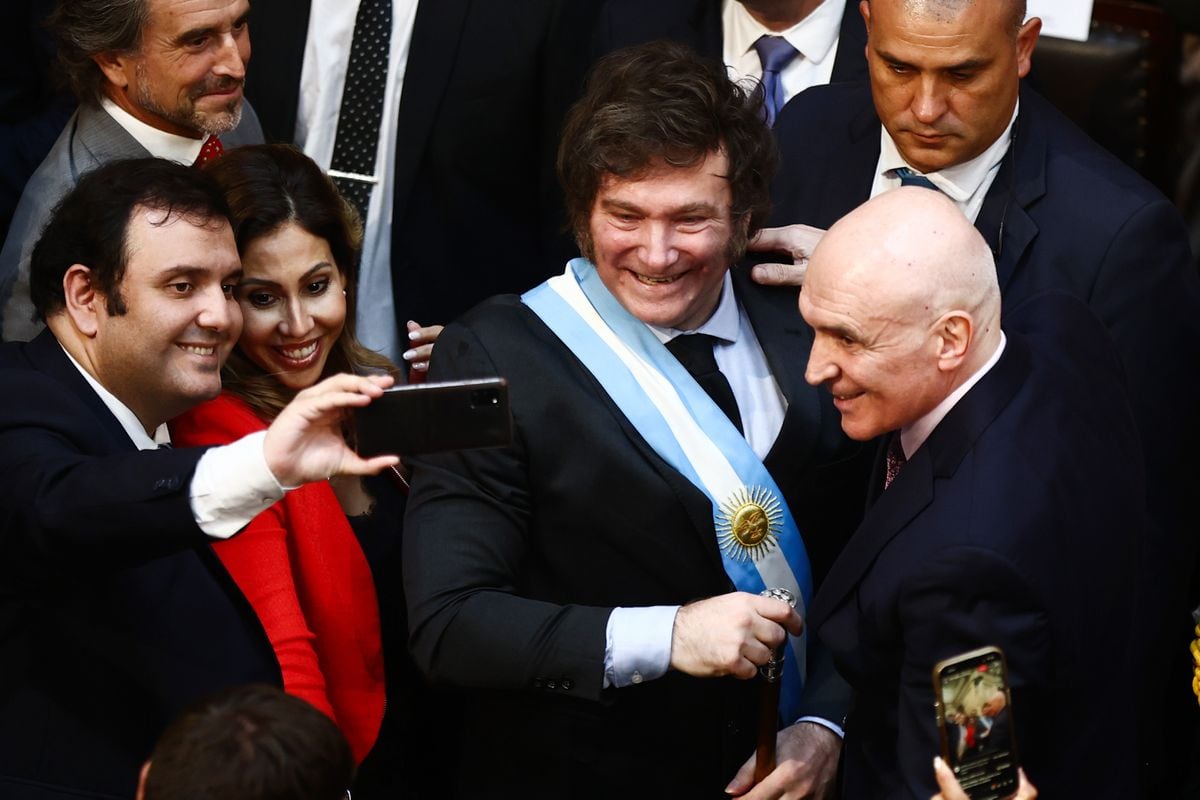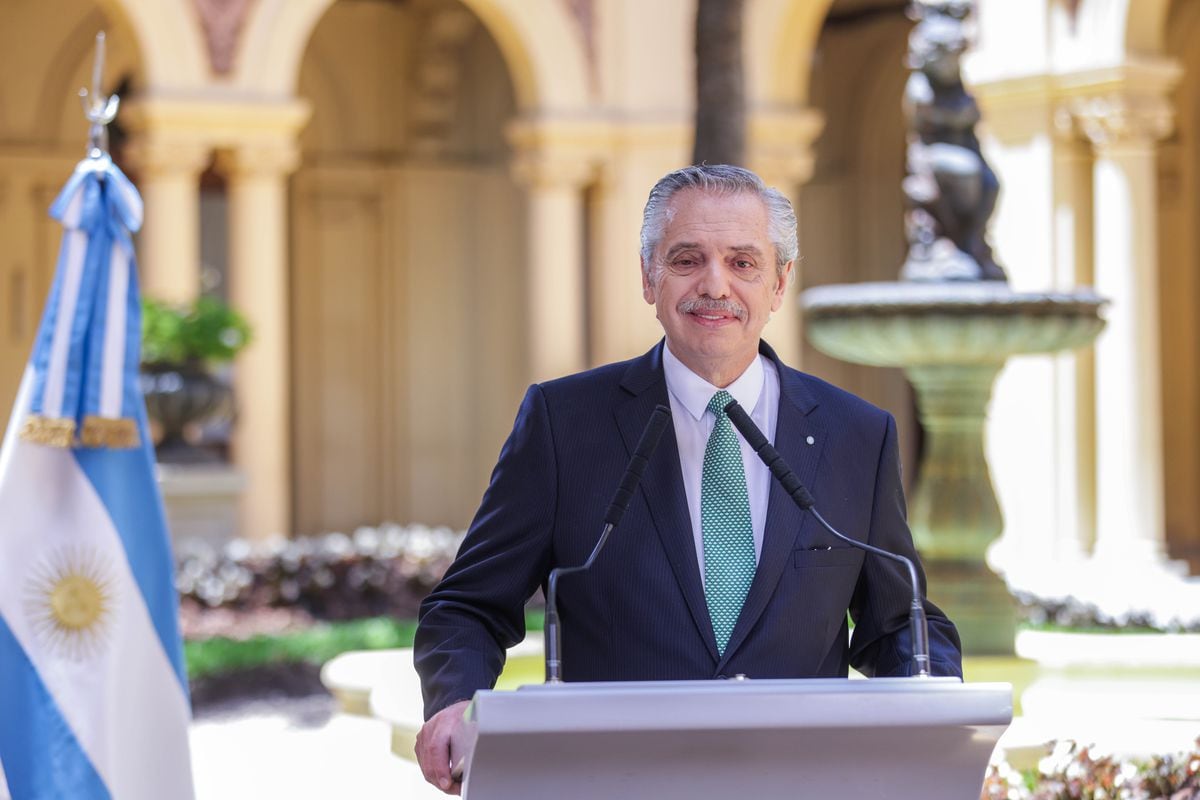The president of Argentina, Alberto Fernández, on October 27 in a tribute held in Buenos Aires for the tenth anniversary of the death of former president Néstor Kirchner.Juan Ignacio Roncoroni / EFE
On December 10, 2019, when he was sworn in as president, Peronist Alberto Fernández hoped to lift Argentina out of two years of recession and record inflation and end, once and for all, with the
default
on the foreign debt contracted by his predecessor, Mauricio Macri.
He also promised to close the political rift that for almost 80 years has divided the Peronists and anti-Peronists.
For this he had the support of his party -so diverse in ideologies and pragmatic-, the endorsement of former president Cristina Fernández de Kirchner and the expectations of a middle class eager for results after the political failure of Macrismo.
The pandemic shattered all forecasts, even the most pessimistic ones.
Argentina is currently immersed in a serious crisis, with poverty rates above 44% (the worst figure in 15 years) and its currency on the ground.
Its financial troubles are in tune with the global debacle, but by the end of the year it will be a little worse than the rest.
Its GDP will fall by 12.9% in 2020, more than any other G20 country and even higher than that of the 2002 corralito crisis, when activity collapsed by 10.9%.
The recovery will also be slower: in 2022 the Argentine GDP will be 3.5 percentage points from the pre-crisis level.
Covid-19 was added to the crisis, with almost 1.5 million infections and 40,000 deaths.
On October 17, the day that is considered the foundation of Peronism, Fernández said that he considered himself "the ruler of the pandemic."
“We will have had to overcome the most difficult moment the world has ever experienced.
In an Argentina in crisis, that pandemic condemned it infinitely more ”, he said.
The general balance of the first year of the Kirchner government is crossed by the complexity of the general picture.
It shows the chiaroscuro of a management that has had to face an emergency in a very weak structural situation, a victim of "previous illnesses", as the director of the IMF, Kristalina Georgieva, said when referring to Argentina.
Fernández's popularity reached astronomical figures in April, close to 80%, when the confinement decreed on March 20 still kept the curve of coronavirus cases at bay.
The fatigue of the people and the increase in cases ended up undermining that percentage, but it still remains high.
“Fernández arrives at the end of the year with an approval level of around 50% and a rejection of 47%.
After such a difficult year, that is favorable ”, says Eduardo Fidanza, director of Poliarquía Consultores.
With the announcement, in August, of the restructuring of 65,000 million dollars in bonds that were in
default,
the Government fulfilled its main campaign promise.
“With a priority on health issues, we were able to successfully resolve the private debt restructuring.
They had left us a lead backpack, and the Government managed to clear the financial picture, and redirect debt resources to those who needed it most, ”says the Chief of Ministers, Santiago Cafiero.
The agreement with the bondholders, however, failed to halt the peso's decline or bring the economy afloat.
Politics has not helped much.
Fernández and the tensions he faces cannot be understood without the figure of Cristina Fernández de Kirchner.
The former president anointed her former chief of ministers as a candidate, with her as a partner in the formula.
The strategy led them to the Casa Rosada, but it imposed in part of the public opinion the idea that Fernández is a "puppet" of the former president and that "he does not govern."
“Alberto's main difficulty before taking office, and one that became more complex with the pandemic, is the identity of his government: who he was and what he came for.
At the time he was the guarantor of the union of Peronism ”, says Mariano Vila, general director of Llorente & Cuenca in Argentina.
Managing the tensions in the Government coalition, where left and right Peronist currents converge, as well as more or less radical social organizations, forced Fernández to act as a tightrope walker.
In this game, the relationship with Cristina Kirchner is followed in the local press as if it were a matter of the heart.
Each gesture of the former president unleashes all kinds of speculation about the quality of the union.
At the end of October, a public letter in which Kirchner distanced himself from the failed nationalization of the agro-export giant Vicentín was interpreted as evidence of an imminent rupture.
"But both are needed", warns Mariano Vila.
“The problem is that it is difficult to manage coalitions;
It is not the same as having parties, because tensions are running high in coalitions.
And here it's about people and their egos, ”he says.
Judicial reform
On Wednesday, the vice president published another text where she does not name Fernández and harshly charges the Supreme Court, which she considers responsible for the judicial ills she suffers.
"The performance of that power did nothing more than confirm that it was from there that the
lawfare
process was spearheaded and directed,
" he said, referring to a practice in which the media advertise things that do not appear in the file or that they are not a crime to conform to public opinion and pressure the judges.
Kirchner's judicial battles ended up muddying an ambitious judicial reform promoted by President Fernández, now delayed in Deputies.
The crisis gave wings to the opposition.
The most radical, represented by Mauricio Macri, insist without nuances that Argentina is on its way to being Venezuela.
The moderates, generally with legislative or executive responsibilities, say that institutional quality has deteriorated.
"The pandemic allowed the Government a concentration of power around the Executive that generated discretion and weakened democracy," says deputy Mario Negri, leader of the opposition group in Congress.
"Four months after the pandemic began," he adds, the Executive "disorganized priorities, increased political tension, did not call for dialogue and based the transition on a strictly judicial program that is linked to the past of the vice president."
With the pandemic already mature and waiting for the vaccine, Fernández has taken steps to regain political initiative.
The most important has been on Thursday in Congress, with the debate in Deputies of a legal abortion law that has wide support in its most progressive bases.
With less enthusiasm the economic agenda advances.
The Government hopes to close an agreement in March for the 44,000 million dollars that the IMF lent to Macri in 2018 and that he cannot pay today.
The economic adjustment necessary for the accounts to balance will test Fernández's astuteness in managing the tensions that are expected.
“We must highlight the capacity to contain social conflicts that Peronism has in Argentina.
Difficult measures have been taken in the economic sphere that in the hands of another government would have caused a high level of conflict, ”says Eduardo Fidanza.
Argentina expects to grow by 5.5% next year;
the OECD forecasts slightly less than 4%.
"The economy began to recover," says Minister Cafiero, "some sectors are already at pre-pandemic levels and even showing a better performance than in 2019".
The Casa Rosada owes much to the result of its economic policy - which it has left in the hands of Martín Guzmán, a disciple of Nobel Prize winner Joseph Stiglitz - because 2021 is the year of Legislative elections.
Those elections will draw the political map of the Argentine post-pandemic.

/cloudfront-eu-central-1.images.arcpublishing.com/prisa/ZP47ZY6JE5CTVES5MXA3FCEXQQ.aspx)













